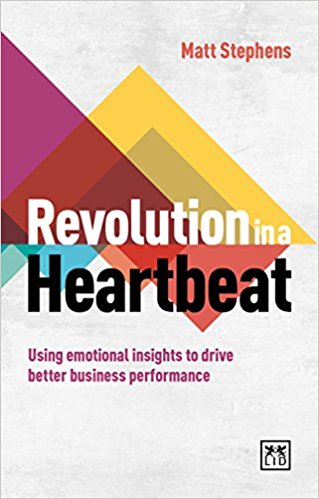World Values Day should be a red letter day for all high performing organisations because it reminds us that values are the compass, which drive what we do. Values are important because they help organisations engage their people. Over the years, while I have seen many places that have values, there are but a few where they have real impact, and sadly is a lost opportunity. As effective values reinforce an organisation’s personality, help ensure consistency, and enable a common, positive, experience for customers. Ineffective values not only make all this harder to achieve, but they often have a toxic effect, encouraging cynicism and damaging the credibility of the organisation.
But how do organisations get values right? The key is to understand people’s emotions as values are closely linked to our feelings. We must feel passionate about them so values need to be in tune with what we hold dear. Some organisations need help to gain this emotional insight, which is integral to better business performance and is something I explain in my new book, ‘Revolution in a Heartbeat’, which shows that organisations are best equipped to engage people when they know how they feel as well as how they think; which is why the Heartbeat technology has been developed; it can take the pulse of an organisation and assess how the workforce is feeling.
With values, having instant, transparent and open communication about people’s emotions helps develop the ‘right’ values in the first place and make sure they resonate with those who need to live them. Once the values are agreed, open, immediate and honest feedback enables an organisation to keep in touch with the impact they are having, and how credible they are. There are five key areas – or what can be called the five sense of values:
Sight – people must see the values regularly, not just on emails, walls, and mugs, but also in the way colleagues behave. This keeps them in people’s minds, shows commitment and demonstrates how they can help. Finding and sharing real examples of the values having an impact will really give them weight and connect people.
 Sound – people also need to hear leaders and colleagues talking about the values, why they are important and what they mean. Leaders must refer to them often and make sure that they link back decisions and policies to the values so people make the connection.
Sound – people also need to hear leaders and colleagues talking about the values, why they are important and what they mean. Leaders must refer to them often and make sure that they link back decisions and policies to the values so people make the connection.
Touch – values work when people can see their fingerprints on them – they and or their colleagues have had some part in the values’ development. This doesn’t mean that they need to be decided by committee or agreed by a vote. It is important, however, that a cross section of people are involved in fine tuning the values and have regular chance to challenge and ask questions about them.
Smell – people will sniff out insincerity quickly. A whiff of values just being developed as a good thing to do and nothing more will turn rapidly into the smell of decay. To be authentic, an organisation’s values need to be embedded in every aspect of the employee’s experience, from the employer branding which first attracts them, through recruitment, personal development and performance management to the way they leave. This can mean making painful decisions and by way of an example, I know of one organisation, where people said that they started to take the values seriously, only when an otherwise successful sales director was removed after persistently flouting them.
Taste – to have an impact, corporate values need the right ‘flavour’ which means they need to resonate with what people’s personal values. Being asked to abide by values, which are counter to one’s own can leave a bad taste. One way round this is to include local managers, who can help greatly by helping their teams link the values with what is important to them.
About The Author
Matt Stephens, founder of Heartbeat Consultancy, which specialises in employee engagement, offers a new context for taking the genuine pulse of a company – so that leaders and management can truly understand how their people are feeling, and know what actions to take that result in better performance. His new book, Revolution in a Heartbeat – Using emotional insights to drive better business performance published this September 2017.
Resources
- Matt Stephens’s new book – Revolution in a Heartbeat
- See the previous blog in the series, by Jackie Le Fevre of Magma Effect.
- See the next blog in the series, by Charles Fowler of the UK Values Alliance.
- See the full list of blogs at www.worldvaluesday.com/blogs
- Participate in the Values Challenge this year! Follow these links for organisations, for community groups, for schools, or for individuals.
- For more inspiration, follow us on social media: LinkedIn | Twitter | Facebook | Instagram






